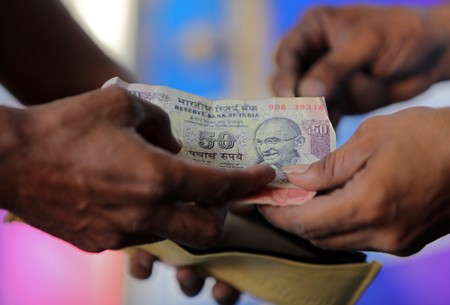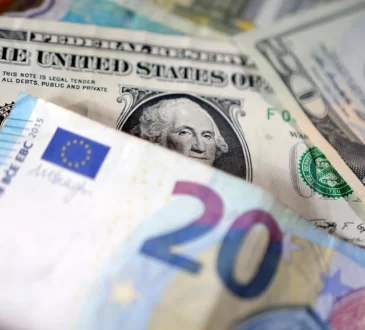


By Rashmi Ashok
(Reuters) – Most emerging Asian currencies slipped on Thursday, as global recession worries and anxiety over the Sino-U.S. trade tussle capped risk appetite while higher oil prices weighed on India’s rupee.
Global bond yields clung near record lows, while the inverse U.S. yield curve, in which long-date yields are lower than their short-dated counterparts, stoked fears of a future recession.
Bets on safe haven assets picked up, with gold prices surging to near six-year highs, while the Japanese yen traded 0.2% higher.
Despite a firmer than expected central bank fixing, the onshore Chinese yuan weakened past 7.17 against the dollar for the first time since Feb. 26, 2008.
It had eased for a 10th straight session on Wednesday, the longest losing streak since December 2015.
“Beyond adjusting to tariffs, the CNY is also reacting to the generalised slowdown in global activities, which is usually negative for EM currencies, as well as weaker domestic growth,” analysts at Societe Generale wrote in a note.
Societe Generale also expects policymakers to allow the yuan to continue to weaken going forward, unless capital outflow pressures intensify or speculative positioning becomes excessive.
The Indian rupee slipped 0.4%, taking an added hit from a jump in overnight crude prices, while the Korean won shed 0.2% ahead of its central bank monetary policy meeting on Friday.
A Reuters poll showed the BoK will likely keep interest rates unchanged on Friday but cut it at the next meeting in October as growing trade tensions hit the export-reliant economy.
While economic headwinds continue to build a case for easing, the BOK will have to fine-tune its actions to control currency depreciation.
The won’s decline past the 1,200 to the dollar level amid an escalating China-U.S. trade war and a persistently falling yuan should make the BOK cautious and dissuade it from cutting rates too fast, analysts at DBS Group said in a note.
“Top officials from the finance ministry have stepped up verbal interventions this week, warning that the government will take pre-emptive actions if there is a herd behaviour in the KRW market,” they added.
Bucking the trend, the Philippine peso recovered slightly after having shed 0.3% in the previous session.
(Reporting by Rashmi Ashok in Bengaluru; Editing by Sam Holmes)




